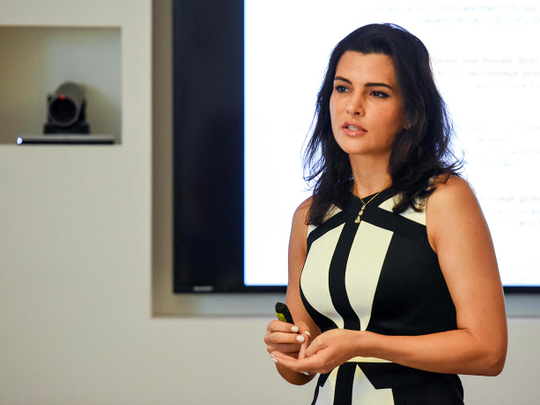
DUBAI: Whilst Gulf countries have seen improvements in female participation in the labour force, many of the strategies used by companies to increase diversity still do not resonate with women, according to a new study by the Boston Consulting Group (BCG).
The study found that many women felt like some policies implemented by senior male executives were overrated, whilst they also highlighted the importance of “hidden gems,” which were initiatives highly valued by women but underrated by male leaders.
“Certainly one of the most, if not the most, important things for women to see is female role models. This is very underrated, but has been used strategically and brilliantly here in the UAE, and we are beginning to see it used more heavily in Saudi Arabia,” said Leila Hoteit, Partner and Managing Director at BCG Middle East.
Recent examples of this in Saudi Arabia are the first female chairperson of Tadawul, the Saudi stock exchange, and first woman executive director of the Dammam Airport Company.
“These women are carefully selected as the most hard-working and dedicated so they cannot be accused of getting their positions simply because of their gender,” Hoteit added.
In the UAE, in particular, female participation has gone from 34 per cent to 46 per cent between 2000 and 2014, according to the recently release report by BCG, which interviewed senior executives and over 17,000 employees, around half of whom were women.
According the report, gender inequality creates an average global income loss of 13.5 per cent, which can be divided into losses due to gaps in occupational choices and losses due to labour force participation gaps. This figure is the lowest in Europe (10 per cent) and highest in the Middle East and North Africa (27 per cent).
The increase in women’s workforce participation in the UAE, however, has been accompanied by an increase in the female unemployment rate. Hoteit says this is driven by a conflict in what women are encouraged by their parents to study for — often soft subjects like education — whilst job opportunities exist in more male-oriented professions, such as science and engineering.
“There is a misalignment between what women are studying and where the jobs are,” Hoteit said.
They key obstacle to greater female participation in the workforce, however, is still clearly cultural biases and prejudice, according to the managing director.
“In many GCC countries, cultural bias still exists, and women are perceived as unsuitable for some jobs or positions. Regulations can also represent a barrier to gender diversity despite significant improvements in the past five to ten years,” Hoteit told reporters on Wednesday morning.
One way to combat such a biased environment is to adopt quotas, something that Hoteit says can be a winning strategy in the short-term, a way to jump the cultural bias barrier by “forcing” the trend.
The UAE Cabinet adopted such an initiative in 2012 when it enacted a law requiring listed companies and government agencies to reserve at least 30 per cent of their board seats for women.












